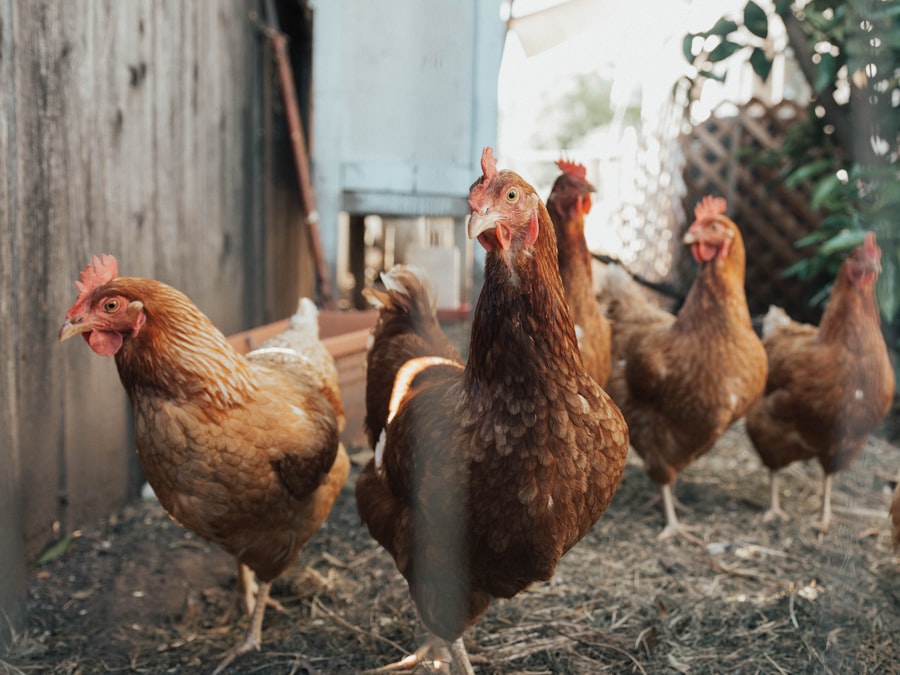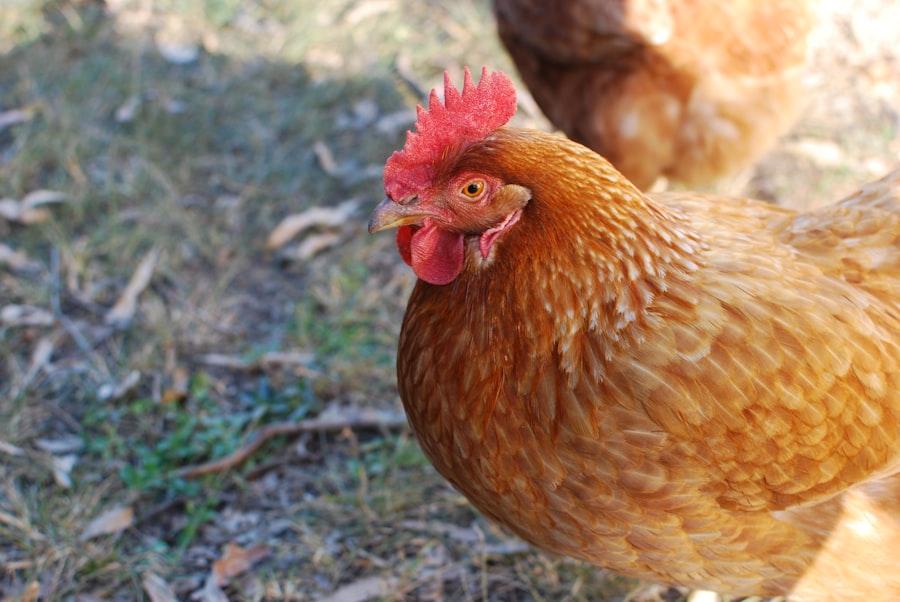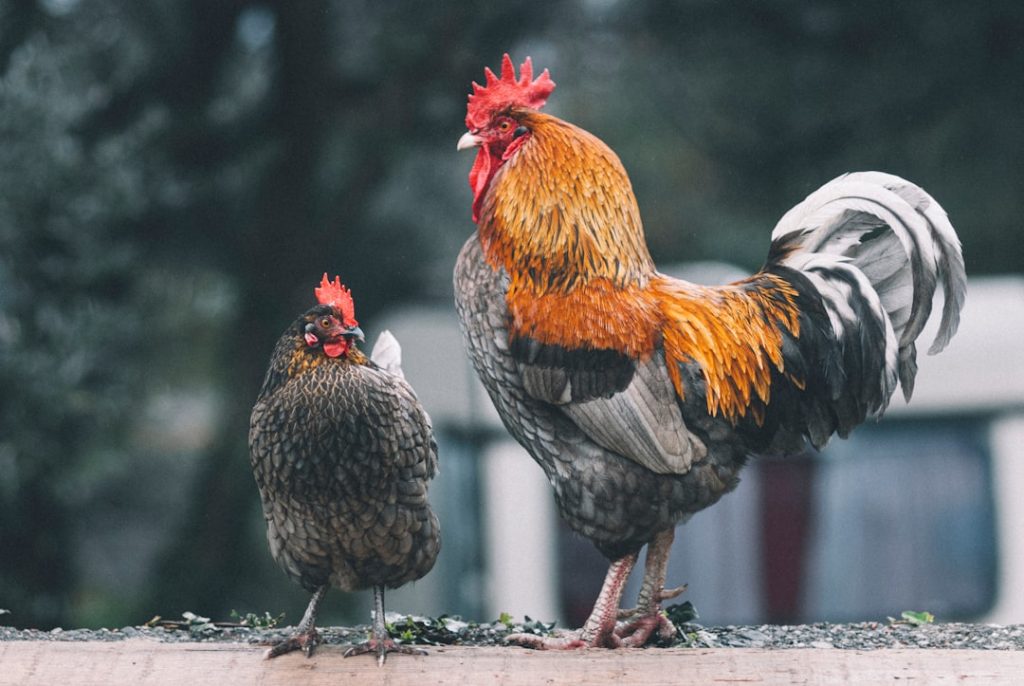Chickens are domesticated birds that provide eggs and meat for human consumption. They can also be kept as pets or for ornamental purposes. However, chickens can cause damage to gardens by scratching the soil, consuming plants, and depositing feces.
This behavior can be problematic for gardeners who invest time and resources in cultivating their plants. Addressing the issue of chickens in gardens requires finding effective solutions that maintain both garden integrity and chicken welfare. One approach involves using chemical deterrents, which can be effective but may raise safety concerns, particularly regarding animal health and environmental impact.
Alternative methods for chicken exclusion exist that do not rely on chemical agents. This article will examine the use of chemical deterrents for chickens, including safety considerations, types of chemicals employed, application techniques, and non-chemical alternatives for maintaining a garden free from chicken intrusion.
Table of Contents
- 1 The Use of Chemicals to Deter Chickens
- 2 Safety Considerations when Using Chemicals in the Garden
- 3 Types of Chemicals that can Keep Chickens Out of the Garden
- 4 Application of Chemicals for Chicken Deterrence
- 5 Alternatives to Chemicals for Keeping Chickens Out of the Garden
- 6 Maintaining a Chicken-Free Garden
- 7 FAQs
- 7.1 What is the chemical used to keep chickens out of the garden?
- 7.2 How does methyl anthranilate work to keep chickens out of the garden?
- 7.3 Is methyl anthranilate safe for use in gardens?
- 7.4 Are there any alternatives to using chemical repellents to keep chickens out of the garden?
- 7.5 How should methyl anthranilate be applied to keep chickens out of the garden?
Key Takeaways
- Chickens can be a nuisance in the garden, causing damage to plants and soil.
- Chemicals such as ammonia and vinegar can be used to deter chickens from the garden.
- Safety precautions should be taken when using chemicals in the garden to ensure the health of plants and animals.
- Other types of chemicals that can be used to keep chickens out of the garden include cayenne pepper and citrus oils.
- Alternatives to using chemicals for keeping chickens out of the garden include physical barriers and natural repellents.
The Use of Chemicals to Deter Chickens
How Chemicals Work
Repellents work by creating an unpleasant smell or taste that chickens will want to avoid. Deterrents, on the other hand, work by creating a physical barrier that chickens will not want to cross.
Common Chemicals Used
One common chemical used as a repellent is capsaicin, which is derived from chili peppers. This substance creates a burning sensation in the mouth and throat of chickens, deterring them from eating plants that have been treated with it. Another common chemical used as a deterrent is ammonia, which creates a strong odor that chickens find unpleasant.
Important Considerations
These chemicals can be effective in keeping chickens out of the garden, but it’s important to consider the safety implications of using them, especially when dealing with food-producing plants.
Safety Considerations when Using Chemicals in the Garden

When using chemicals in the garden to deter chickens, it’s important to consider the safety implications for both the chickens and the plants. Some chemicals can be harmful to chickens if ingested, so it’s important to use them sparingly and only on plants that are not intended for consumption by the chickens. It’s also important to consider the potential impact of these chemicals on the environment and other wildlife.
In addition, it’s important to consider the safety of humans who may come into contact with these chemicals. Some chemicals can be harmful if they come into contact with skin or if they are inhaled. It’s important to follow the manufacturer’s instructions for safe use and application of these chemicals, and to take precautions such as wearing gloves and a mask when handling them.
Types of Chemicals that can Keep Chickens Out of the Garden
There are several types of chemicals that can be used to keep chickens out of the garden. One common type is capsaicin, which is derived from chili peppers. This substance creates a burning sensation in the mouth and throat of chickens, deterring them from eating plants that have been treated with it.
Another common type is ammonia, which creates a strong odor that chickens find unpleasant. In addition to these natural substances, there are also commercial products available that are specifically designed to deter chickens from entering the garden. These products often contain a combination of natural and synthetic chemicals that are designed to create an unpleasant experience for chickens without causing harm to them.
Application of Chemicals for Chicken Deterrence
When using chemicals to deter chickens from entering the garden, it’s important to follow the manufacturer’s instructions for safe use and application. This may involve diluting the chemical with water and spraying it onto the plants that you want to protect. It’s important to apply the chemical evenly and thoroughly to ensure that it is effective in deterring chickens.
It’s also important to consider the timing of application. Some chemicals may need to be reapplied after a certain period of time, especially if there has been rain or irrigation that could wash away the chemical. It’s important to monitor the effectiveness of the chemical and reapply it as needed to ensure that it continues to deter chickens from entering the garden.
Alternatives to Chemicals for Keeping Chickens Out of the Garden

Physical Barriers: A Safe and Effective Solution
One common method to keep chickens out of the garden is the use of physical barriers such as fences or netting. This can be an effective way to protect plants without resorting to chemicals.
Scare Tactics: A Humane Deterrent
Another alternative method is the use of scare tactics such as noise makers or visual deterrents. These can be effective in deterring chickens from entering the garden without causing harm to them or the environment.
Considering the Environment and Food Safety
It’s important to consider these alternative methods before resorting to chemicals, especially if you are growing food-producing plants that could be affected by the chemicals. By choosing a non-chemical approach, you can ensure a safe and healthy harvest.
Maintaining a Chicken-Free Garden
In conclusion, keeping chickens out of the garden can be a challenge, but there are several methods that can be used to achieve this goal. While chemicals can be effective in deterring chickens, it’s important to consider the safety implications for both the chickens and the environment. It’s also important to consider alternative methods such as physical barriers and scare tactics before resorting to chemicals.
By carefully considering the safety implications and exploring alternative methods, it is possible to maintain a chicken-free garden without causing harm to the chickens or the environment. Whether you choose to use chemicals or alternative methods, it’s important to monitor the effectiveness of your chosen method and make adjustments as needed to ensure that your garden remains free from chicken invasions.
If you’re looking for ways to keep chickens out of your garden, you may want to consider building a large chicken coop. According to Poultry Wizard, a well-designed and spacious coop can provide your chickens with a comfortable and secure living space, reducing the likelihood of them wandering into your garden. By providing your chickens with a suitable environment, you can help prevent them from causing damage to your plants and vegetables.
FAQs
What is the chemical used to keep chickens out of the garden?
The chemical commonly used to keep chickens out of the garden is methyl anthranilate, which is a non-toxic bird repellent.
How does methyl anthranilate work to keep chickens out of the garden?
Methyl anthranilate works by emitting a grape-like scent that is unpleasant to chickens, causing them to avoid the treated area.
Is methyl anthranilate safe for use in gardens?
Methyl anthranilate is considered safe for use in gardens as it is non-toxic to plants, animals, and humans. However, it is important to follow the manufacturer’s instructions for application.
Are there any alternatives to using chemical repellents to keep chickens out of the garden?
Yes, there are alternative methods to keep chickens out of the garden, such as using physical barriers like fences or netting, planting chicken-resistant plants, or using scare tactics like motion-activated sprinklers.
How should methyl anthranilate be applied to keep chickens out of the garden?
Methyl anthranilate can be applied as a spray directly onto the plants or surfaces that need protection from chickens. It is important to reapply the repellent as needed, especially after rainfall.
Meet Walter, the feathered-friend fanatic of Florida! Nestled in the sunshine state, Walter struts through life with his feathered companions, clucking his way to happiness. With a coop that’s fancier than a five-star hotel, he’s the Don Juan of the chicken world. When he’s not teaching his hens to do the cha-cha, you’ll find him in a heated debate with his prized rooster, Sir Clucks-a-Lot. Walter’s poultry passion is no yolk; he’s the sunny-side-up guy you never knew you needed in your flock of friends!







